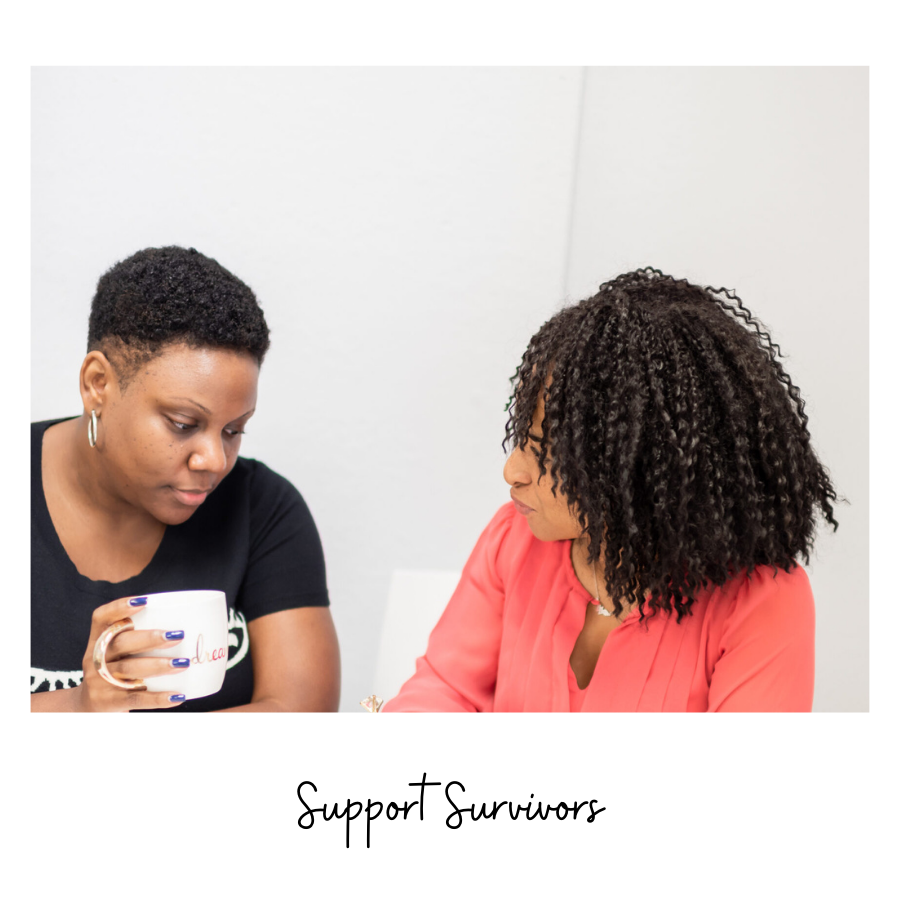Sometimes I love when people ask me what I do for my job and sometimes I hate it. I usually skirt around the topic and say I’m a “health educator” at a university. Sometimes I delight in the awkwardness and say I work with sexual assault survivors. I enjoy watching people stumble out a polite answer commending the difficult work I do. We then quickly change the subject.
While I do work with survivors, my job is actually the fun part. I mainly do prevention work which entails talking about healthy relationships and consent. But I do get requests from students a lot about how they can support their friends when they have been sexually asaulted.
Humans are so awkward when it comes to being around people who are feeling sad. When someone has been subjected to a traumatic experience, we really don’t know how to act. Our knee-jerk reaction is to try to change the other person’s mood. We jump to fix the situation.
We can’t just “fix” someone who has been sexually assaulted. That’s not even my job and I’m the professional.
A note about language so far: So far and for the rest of this post I will be using the term survivor. While this is the most common term used in this field of work, some people do not like this term to label themselves. Some people prefer the term victim as it doesn’t undermine the gravity of their experience. When I talk to survivors, I make sure to mirror their language to make sure I am using the most appropriate terms.
In all of my experience and training as an advocate (different from a counselor), I have learned a lot about supporting survivors during difficult times and even times of crisis. Here, I would like to share 5 really important things to keep in mind when supporting survivors of sexual assault.
1: Listen!
Obviously the first thing you want to do if a loved one discloses being sexually assaulted is listen to them. The best thing to do is listen to understand and not to respond. Give them your undivided attention. Don’t look at your phone, watch tv, etc.
Body language is super important. Do actions to let them know you are listening such as giving appropriate eye contact (don’t intensely stare into their eyes) and nodding.
2: Don’t get overly emotional
The best thing to do is keep a calm and even affect. Try not to get over emotional when you are with them. If you do things like cry in front of them or blame yourself, that puts them in a position to make you feel better when they were the ones coming to you seeking support.
Getting angry or threatening aggression toward the assailant isn’t helpful either. The survivor may worry about you getting harmed or may even feel like they have to defend the assailant (especially because it’s most common for survivors to know or have some sort of relationship with their assailant).
3: Validate their feelings
After someone has been sexually assaulted, they may doubt their feelings or blame themselves. Hearing someone say “What you have gone through is horrible” is sometimes all they need to hear. We all have those times where we need someone to assure us that our feelings are valid.
You don’t always have to agree with their decisions to validate them. For example, if you think they should report to the police, but they don’t think they want to, you can support them with that decision because they know what’s best for them, even though you would do something different.
4: Know the resources
It can be difficult for someone in the middle of a crisis to know what step they should take next. Be aware of the resources you can share with them, or at least be there to help them look. This doesn’t mean you make any decisions for them.
RAINN is a really great national resource with a hotline and chatline. You can find your local providers through their website as well. For teens, there is Love is Respect. They have a hotline and a chatline. Although they mostly help with relationship violence, they also help survivors of sexual assault since oftentimes it occurs within current or previous relationships.
5: Stand up for survivors everywhere
Be a good bystander. If you see someone who needs help, step in and help. Does someone look uncomfortable being touched at a bar? Does a coworker make overly sexual advances toward another colleague? Even if it’s just someone making a rape joke. Call it all out! When we disrupt the behaviors before they escalate, we can create a society that protects each other from sexual assault.
Many of our policies and laws are harmful for survivors. Some states still allow marital/spousal rape. Some states have very gendered language that leave out male and trans survivors from reporting. And there are so many places that have a backlog of untested forensic exam evidence kits (commonly known as rape kits). Advocate to your local officials to change these policies.



Pingback: 5 Ways to Show Up and Support Survivors – Tayler Made Books